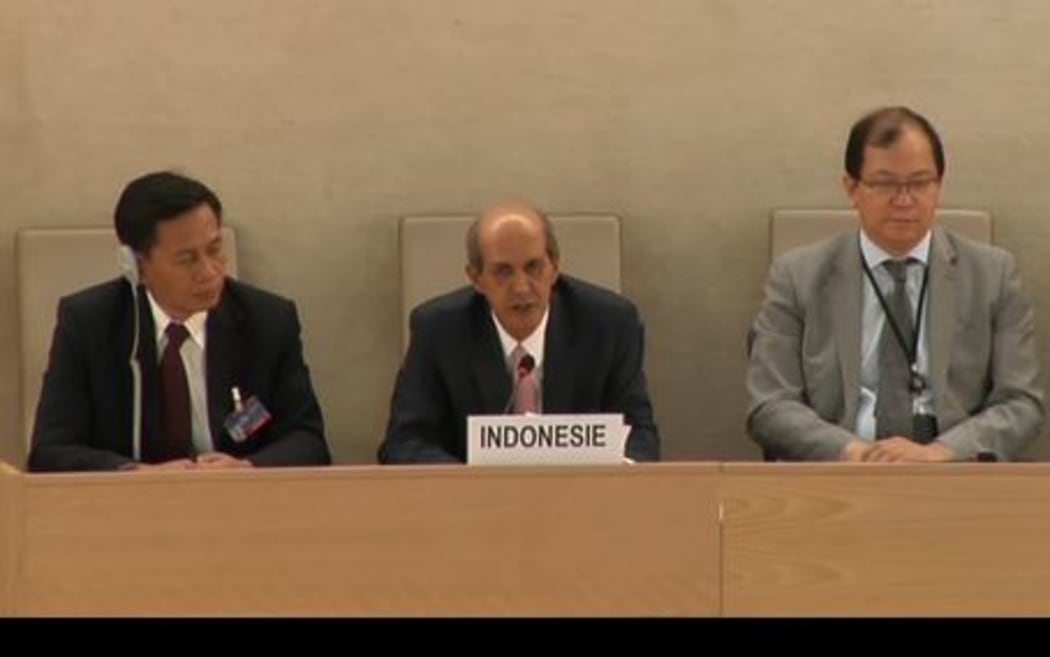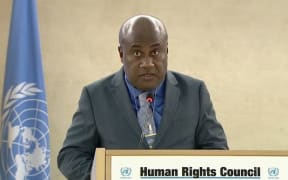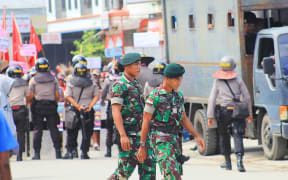Several countries have highlighted concern about treatment of West Papuans, in a human rights review of Indonesia at the UN in Geneva.
New Zealand, Australia, Austria, Germany and Mexico were among the countries raising concern about human rights in Papua during the 27th session of the UN Universal Period Review.

Indonesia's permanent representative in Geneva, Hasan Kleib (middle) responds to recommendations on human rights in the UN Universal Period Review, 2017. Photo: webtv.un.org
The Austrian delegation voiced concern about a "lack of accountability for human rights violations committed by security forces in Papua".
New Zealand recommended that Indonesia "ensure human rights obligations in Papua are upheld, respected and promoted, including freedom of assembly, freedom of the press and the rights of women and minorities."
Australia recommended that Indonesia should "finalise the investigation of all human rights cases in Papua".
Mexico's representative urged Indonesia to "extend an invitation to the special rapporteur on the rights of indigenous peoples to visit Indonesia, including Papua."
While Indonesia was praised for the improvements it has made on human rights in general, the delegations of several countries raised their concerns and recommended that Indonesia should do more.
Indonesia's permanent representative in Geneva, Hasan Kleib said his country was open to input on addressing its human rights challenges and willing to listen to "constructive observation".
"We consider this constructive reminders, comments and even criticism as a platform to scrutinise things that we as a state may have probably missed," he said.
"In this regard Indonesia has solid commitment and political will to make changes for the better."
Indonesia accepted 150 of the 225 overall recommendations it received in its review.
Hasan Kleib said the remainder would be further examined due to four reasons:
"One, further consultation with broader and relevant national stakeholders is needed. Second, an accurate formulation of the recommendations which make them difficult to be translated into policies. Third, it's still out of national policies," he explained.
"And fourth, lack of understanding of the context of the factual situations on the ground. Indonesia has tried to consult with the countries concerned. But apparently, further elaboration is needed."
The country is expected to state its position on the pending recommendations by September, during the 36th session of the Human Rights Council.




